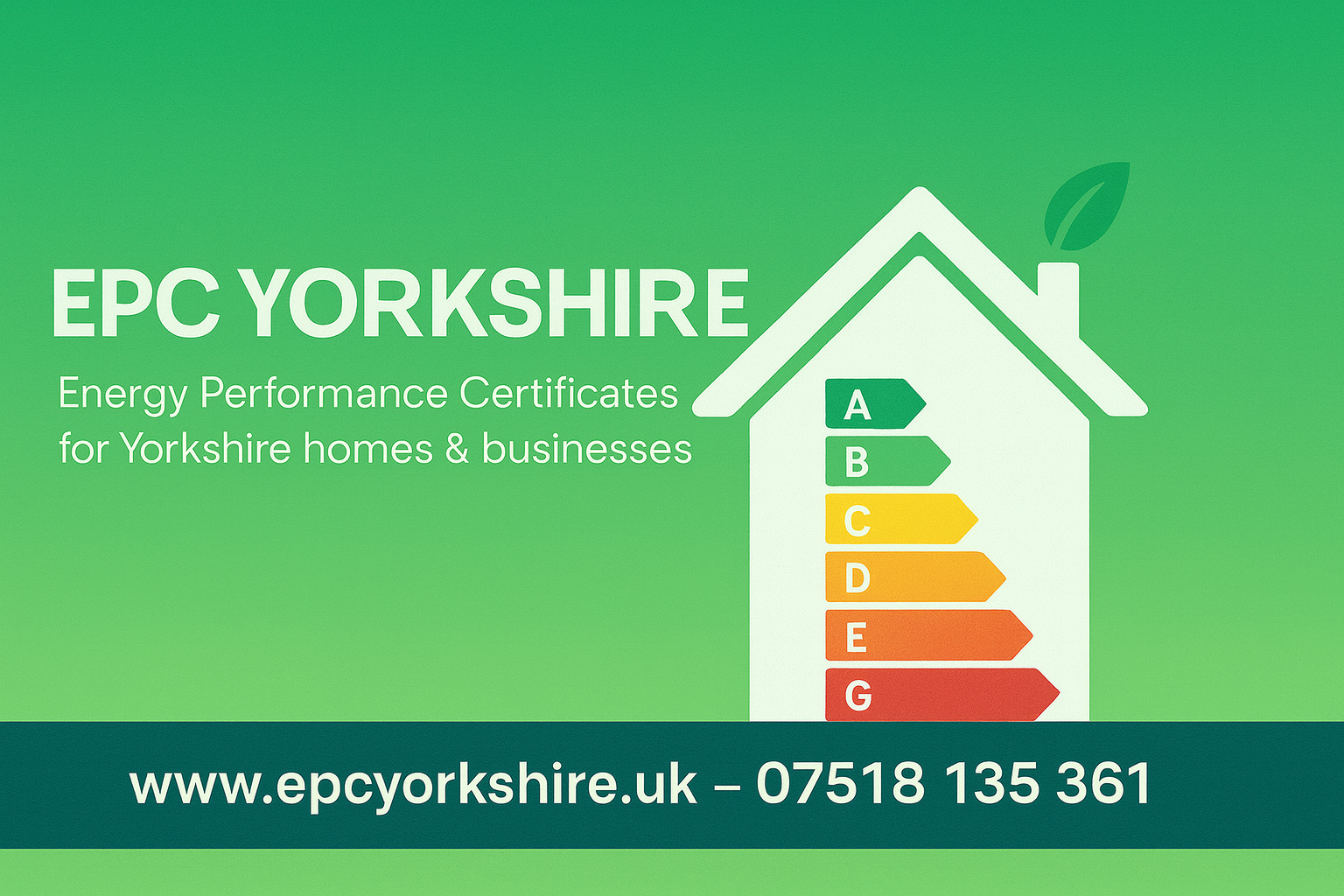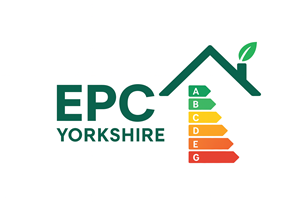Understanding the EPC Assessment Process
If you’ve booked (or are thinking about booking) an Energy Performance Certificate (EPC), you might be wondering what exactly happens when the assessor visits your property.
At EPC Yorkshire, we want to make the process simple, transparent, and stress-free.
Here’s everything you need to know about what an EPC assessor does during a home visit — and how we make sure you get your certificate quickly, professionally, and for a fixed price of just £59.99.
⚡ What Is an EPC Assessor?
An EPC assessor (or Domestic Energy Assessor) is a trained and government-accredited professional who evaluates how energy-efficient a property is.
Their job is to:
- Visit your home or business premises
- Collect accurate data about the building and its systems
- Enter this information into government-approved software
- Produce your official Energy Performance Certificate (EPC)
Only accredited assessors can legally issue EPCs in the UK. Every EPC they produce is lodged onto the official government EPC Register, where it remains valid for 10 years.
🧰 Before the Visit: Preparing for Your EPC Assessment
Before your assessor arrives, it helps to make sure they can access all areas of your property.
You don’t need to tidy up or move furniture — but the following will help speed things up:
- Make sure all rooms (including the loft if possible) are accessible
- Keep your boiler, hot water cylinder, and meters easy to reach
- Have any relevant documents ready, such as:
- Boiler manuals
- Insulation certificates
- Details of any solar panels or renewable systems
The more information the assessor can verify, the more accurate and beneficial your EPC will be.
🏠 What the Assessor Looks At During the Visit
An EPC assessment is non-invasive — nothing is drilled, removed, or damaged. The assessor simply observes, measures, and records information about your home.
Here’s what they’ll look at in detail:
1️⃣ Property Type and Age
The assessor identifies your property type (e.g. detached, semi-detached, flat, bungalow) and its approximate construction age.
This helps determine the building’s expected insulation standards and construction materials.
2️⃣ Walls and Insulation
They check what kind of walls your property has — solid, cavity, or timber frame — and whether they appear to be insulated.
If you’ve had cavity wall insulation fitted, you can show proof (like a certificate) to confirm it.
3️⃣ Roof and Loft Insulation
Your roof structure and insulation are examined next.
If there’s a loft, the assessor may take a quick look to see what type of insulation is present and its thickness.
This is one of the biggest factors in your EPC rating.
4️⃣ Windows and Glazing
The assessor inspects your windows to confirm whether they are single, double, or triple glazed, and whether they’re modern, energy-efficient units.
They also check the frame material (uPVC, wood, aluminium, etc.).
5️⃣ Heating System
Your heating system is one of the most important aspects of your EPC.
The assessor records details about:
- The type of boiler or heating system you use (e.g. gas, oil, electric, heat pump)
- The boiler make and model (if identifiable)
- The heating controls (e.g. thermostat, programmer, thermostatic radiator valves)
Having efficient heating controls can improve your EPC score significantly.
6️⃣ Hot Water System
If you have a hot water cylinder, the assessor checks whether it’s insulated and whether you have secondary heating sources (like an immersion heater, gas fire, or wood burner).
7️⃣ Lighting
They’ll take note of how many of your light fittings use energy-efficient bulbs (LED or CFL) compared to older incandescent ones.
Upgrading all bulbs to energy-efficient versions is one of the easiest ways to improve your EPC rating.
8️⃣ Floor Construction and Insulation
The assessor identifies whether your ground floor is solid or suspended and if there’s any visible or known insulation.
Floor insulation can also contribute to a better energy rating.
9️⃣ Renewable Energy Sources
If you have renewable energy systems such as:
- Solar panels
- Air or ground source heat pumps
- Solar thermal water heating
- Wind turbines
The assessor will record these details, as they can significantly improve your EPC rating.
🔟 Measurements and Property Layout
Using a laser measurer, the assessor takes key measurements of your property to calculate total floor area and heat-loss zones.
They’ll note down the number of storeys, rooms, and extensions if applicable.
📸 Photos and Evidence
As part of the government’s quality assurance rules, assessors must take photographic evidence to support their findings.
These images are used only for verification purposes and are stored securely when your EPC is lodged.
Typical photos include:
- Heating system
- Boiler and programmer
- Hot water cylinder
- Windows and insulation
- Front and rear of the property
Rest assured, assessors do not photograph personal or sensitive areas — only features relevant to energy assessment.
⏱ How Long Does the Visit Take?
For most residential properties, an EPC assessment takes between 30 and 60 minutes, depending on the size and layout of the home.
Smaller flats or apartments may take less than half an hour, while larger detached homes might take closer to an hour.
At EPC Yorkshire, we always aim to work efficiently, causing minimal disruption to your day.
📊 After the Visit: Producing Your EPC
Once the site visit is complete, your assessor inputs all collected data into government-approved EPC software.
The program uses standardised calculations (called RdSAP – Reduced Data Standard Assessment Procedure) to determine:
- Your property’s current energy efficiency rating (A–G)
- Your potential rating if recommended improvements were made
- Estimated energy use and carbon emissions
- Suggestions for improving efficiency and reducing costs
The final EPC is then lodged on the official EPC Register, where it’s valid for 10 years.
You’ll receive your official certificate by email — usually within 24–48 hours of your visit.
💷 Fixed Price, Fast Service
At EPC Yorkshire, we believe in clear, honest pricing.
That’s why we charge a flat rate of £59.99 — no matter where you are in Yorkshire, or how big or small your home is.
You’ll receive:
- A professional on-site assessment
- Your official EPC report
- A full lodgement on the government register
- Expert advice on improving your EPC rating
All for £59.99 fixed price — no hidden extras.
🌿 Why Choose EPC Yorkshire?
✅ Fully Accredited Assessors – All our EPCs are carried out by government-approved professionals.
✅ Fast Turnaround – Certificates delivered within 24–48 hours.
✅ Friendly Local Service – Covering Leeds, York, Sheffield, Hull, Bradford, Wakefield, and beyond.
✅ Affordable Fixed Price – Only £59.99, with no travel fees or surprises.
✅ Trusted & Transparent – Clear communication from booking to delivery.
📞 Book Your EPC Assessment Today
Whether you’re selling, renting, or just want to know your home’s energy efficiency, booking your EPC is easy.
📱 Call: 07518 135 361
📧 Email: johnpaulhood2015@gmail.com
🌐 Website: www.epcyorkshire.uk
Your EPC includes a full on-site inspection by a qualified assessor, your certificate registered on the official EPC database, and expert guidance on energy improvements — all for just £59.99.

